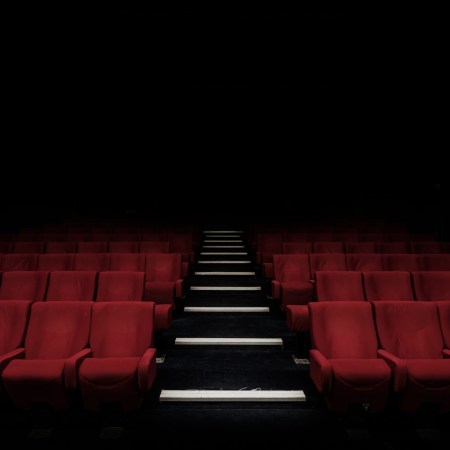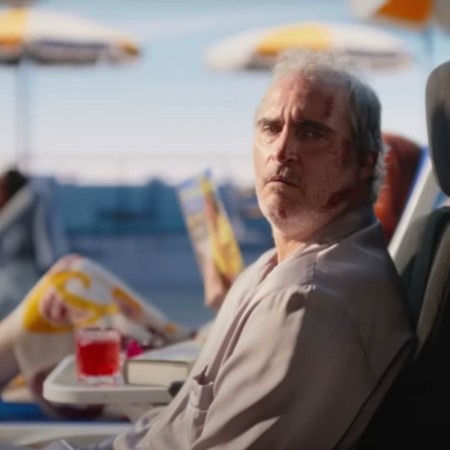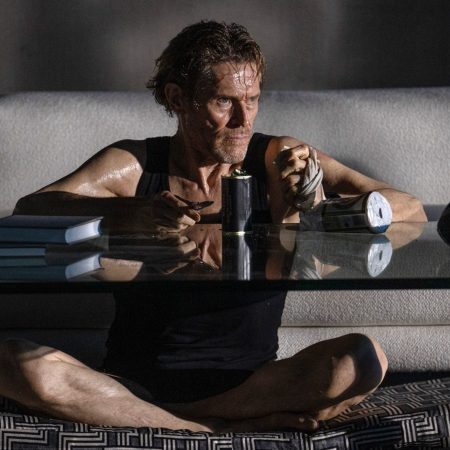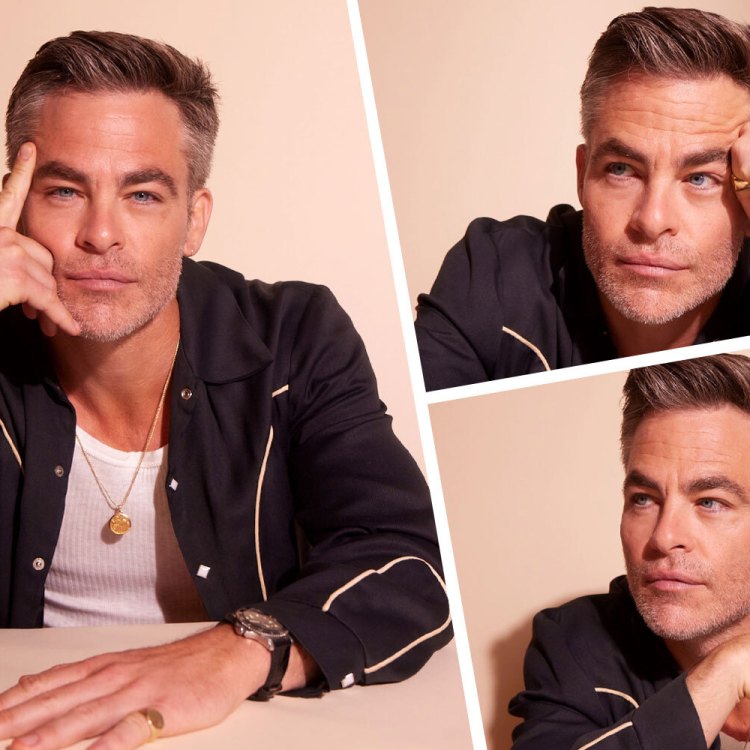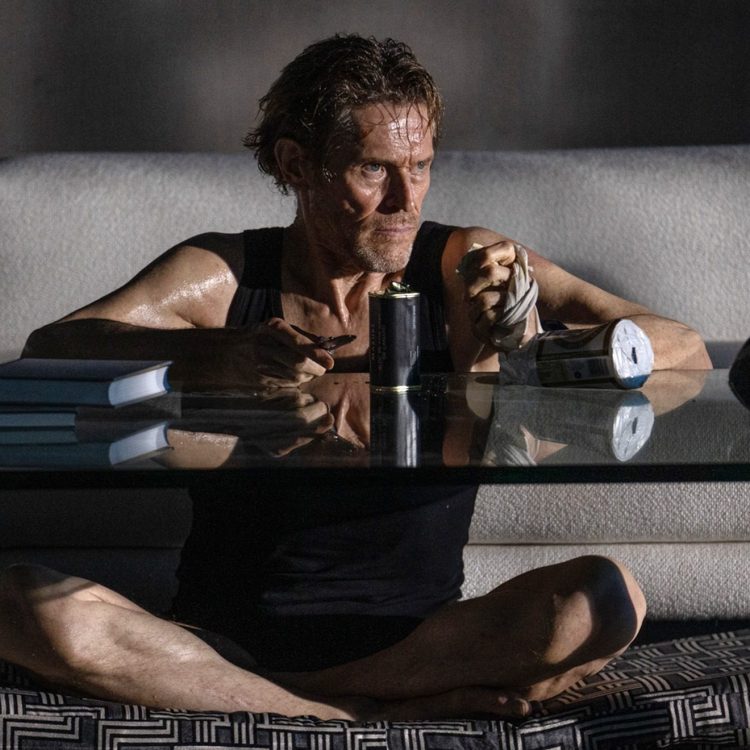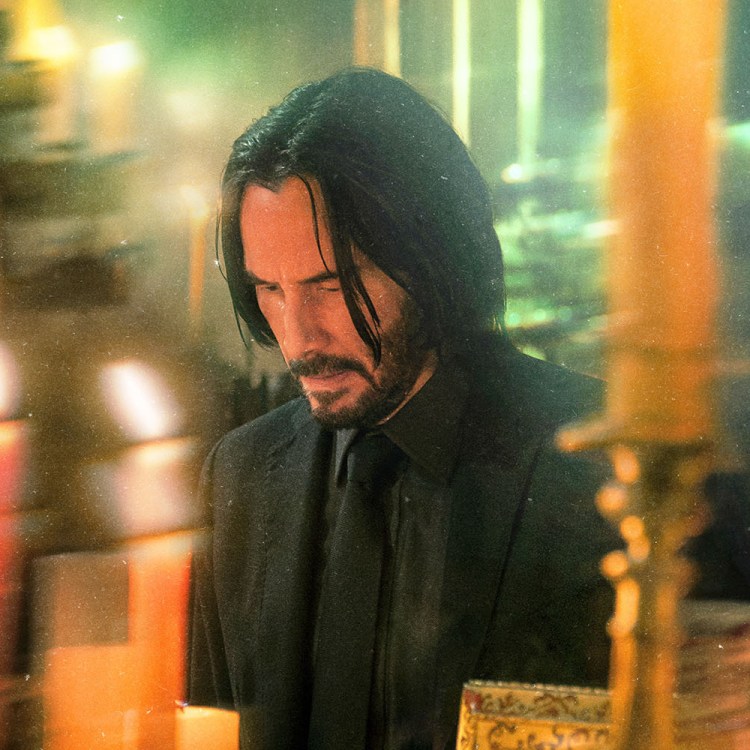Abel Ferrara treats New York like an ex with whom he’s on amicable terms. The filmmaker spent the 20th century as a load-bearing pillar of the emerging independent scene in NYC, taking grimily mesmerizing snapshots of street life and the scuzzballs peopling it. But flagging financing for his uncompromising visions of violence and sexuality, combined with the overhaul of the city’s character catalyzed by 9/11, compelled him to relocate to Rome in the wake of that pivotal tragedy. He still feels a fondness for the city he’ll never renounce as home, even as he values the distance he’s put between it and himself. He’s lived there long enough to know full well that a volatile love-hate relationship to the city is an essential facet of being a New Yorker.
These days, the former city slicker is getting domestic. Not just in terms of the pandemic quarantine, which has confined the 68-year-old to his apartment with his wife and young daughter, but in his embracing the role of a dutiful father and husband. That’s the gist of his newly released film Tommaso, which casts Ferrara’s longtime collaborator and close friend Willem Dafoe as a clear avatar for the director. The title figure is also a filmmaker with a past of substance dependency, trying to stay clean for the sake of his family while working through inner turmoil of his own. (Ferrara’s actual wife, daughter and apartment all stand in for themselves.) It’s the sort of unruly, nakedly confessional auteur picture that’s fallen out of fashion for all but the most fearless, driven cineastes.
With protests and the accompanying police brutality ramping up on the streets he used to tread, Ferrara got on the phone with InsideHook from his quarantine in Rome. The famously candid subject had plenty to say about the declining standards of pornography, the upsides of sobriety, the importance of visiting Jerusalem and the darkest chapter of New York’s history.
InsideHook: You said in a recent interview that the character of Tommaso is both not you and not not you. What occupies in the gap between those two?
Abel Ferrara: I wrote it, so yeah, there’s gonna be some biographical stuff. Confessions are part of this genre of drama I’m working in. But when the filmmaking process takes over, it becomes in part about the actor who’s gonna play it. They make for a physical prism, and through that, we make the character up together. I could never be someone who is already Willem. The creation of a film is the creation of a person. Tommaso has his own world outside of me.
A lot of filmmakers create avatars onscreen to do or say things they feel they couldn’t in their actual lives.
I guess, but I pretty much say whatever I want anyway. I understand what you’re getting at, though. He’s a tool for reflection, better understanding of myself. Any film gives you that, a character that might be based on its creator. Whether a character’s based on you or based on someone else or made out of thin air, it always ends up revealing something about you. That’s the reason we do this. We come to a new understanding.
Like you, Tommaso’s playing family man while living in Italy, trying to be a good husband and father to a young child. Have you gotten comfortable with that phase in life?
This is my second time around raising kids, I got two older daughters. The big difference now is that I’m sober, and I wasn’t sober the first time. That’s the change, doing this all without drugs and alcohol. It’s … [long pause of contemplation] way, waaaay better. That’s putting it mildly.
I think the most powerful scenes in the film come from Tommaso’s Narcotics Anonymous meetings. He talks about the difficulties of staying disciplined, and you mentioned last year that you don’t go to Napoli anymore because there are too many reminders of using. Is being sober still a day-to-day challenge?
Yeah, it’s every day. They say this shit so much, but it’s true — you take it one day at a time. After seven years now, I can’t take anything for granted. I’ve been given a second lease on life, a chance to make some things better and do some things right. It was all an illusion, the needing, whether it was drugs or alcohol or any other self-destruction. But it was an illusion with a physical reality, and so it feels much stronger. Now that it’s lifted, now that it’s gone, I’ve found a new peace. It’s a rebirth — but it’s tenuous. I’ve been around too many people who take me back. Your alcoholism works even when you’re not drinking, you know, it’s a fucking disease. You gotta be on guard, month after month. There’s no time limit, and you gotta accept that.
Tommaso finds some inner peace through meditation, and you’ve talked in the past about dabbling with Buddhism. Do you meditate regularly?
Yeah, I do, it helps. But I’m a full Buddhist, though it’s not like I declared it officially one day.
I didn’t want to put you in a box or anything.
It’s not about a box, it’s just — the biggest Buddhists I know would never say “I’m a Buddhist.” When you say that, you sound stupid, like you’re showing off. Most people in the West who say that think it’s about replacing Jesus Christ with Buddha, and of course it’s not. It’s a practice for me, not a religion. It’s funny, I came to it when I was shooting Mary, a religious film about Mary Magdalene in Jerusalem. Being raised Roman Catholic, we spent our lives balancing out accepting and rejecting and questioning it, trying to deal with that pressure. And then, ah, you ever been to Jerusalem?
Can’t say that I have.
You should make that trip, because that’s a pretty heavy town. You go there, and for me, I started to see Jesus as a living man. He was a political figure, and once you think of the stories in that way, they become what they are. Him fighting against the Romans, that’s a political struggle as much as it is a spiritual one. When you stand where he was crucified, it all changes. That forms a parallel to Tommaso, too, who has his own crucifixion. Both of them, they weren’t crucified in some villa far from town, they were basically killed at the gates of the city. That’s why there’s a Christ on the cross near the train station in Rome, right where you get out. It’s a symbol that says, “Hey guys, you want to talk shit about the government? This is what happens.” It’s all messaging. You should go for Passover. Jerusalem, what a city.
All this Jesus talk — have you ever asked Willem about working on The Last Temptation of Christ?
We talked about this the first time I met him, a long time ago. I learned that day that he’s not big on talking about Jesus.
You two have an extremely close bond, as creative collaborators and as friends over the years. What do you think it is that brings you two together?
Mutual interests. We come from similar homes, follow similar rules to live. An actor looks for a director; a director looks for an actor. You find someone who fits into your grooves and keep them around.
You moved out of New York after 9/11, citing a lot of the usual complaints — everything is too expensive, the independent art scene is fading. Being far away during another time of crisis, I’m curious if your feelings have changed or if you’ve gotten any new perspective by witnessing this all from Rome.
For a while after 9/11, New York really felt like a place that was waking up to its sense of community. It’s hard for me to speak about the New York of today, I’ve been away so long. But there’s no difference now, far as I can see. You wanna talk about Buddhism? We went from a world where we’re all living individually to a world where we’re all living through the same thing. I’m a New Yorker forever, but really, I feel connected to it here in Rome. Citizen of the world, you know? We’ve got lockdowns, riots, people getting arrested. Journalists out there, guys like you, getting locked up.
You see the footage of the CNN anchor getting fired on?
Fuck yeah, bro! It’s insanity. You tell me, you’re a journalist: What’s your next move?
I don’t know, I’m a film critic. My job is generally much lower-stakes than this.
You better buy a gun. They won’t want you reviewing films, gotta be careful what you say. It’s all about right to free speech, free press, everyone’s on those stakes now.
I’ve seen a lot of people who live here leaving New York, and I think I’d feel wrong to not be here through this part of its history, and I know your connection to the city is stronger than mine.
Are you from New York originally?
I’ve been here a while, but I’m from Massachusetts.
Where in the state?
Next to Salem, the one with the witch hysteria.
Shit. People are from Salem? That’s fucking great. You know any witches?
Not that I know of, but I did work at the Salem Witch Museum for a while.
That’s free speech right there. Probably the first free-speech crisis in the history of America, the prehistory of America, right in your town. But about New York, there’s something there that’s also in Rome, that’s in every city in the world. I feel a connection. Look how this is all over America, because we’re all suffering from the same shit. The issues in New York are the issues in America are the issues in Europe. Economic disparity is destroying an entire class of people.
It’s like, what’s the point of New York if only rich people can live there?
New York will be what it is. The rich people will always be what they are. The reality I’m talking about is hospital treatment. When there’s not enough money to keep doctors and nurses safe, to isolate people who need it, to protect yourself from dying of something preventable, whether that’s in your apartment or on the street? That’s when you know that the pain has risen to the point where chickens will soon come home to roost.
How have you been handling the lockdown yourself? I assume you’re in your apartment all day, every day.
I’ve been okay at home. I got an apartment here in Rome because the rents were so reasonable. You’ve seen the apartment, most of Tommaso was shot in there — a few rooms, nice high ceilings, I can go up on the fuckin’ roof if I want to. We’re happy if we can isolate safely. I have an editing room, that’s where I spend most of my time, because we’re actually cutting another film right now. We finished shooting right before this whole thing hit. I’m fortunate in that I’m one of the few directors sitting on completed footage right now, so I’ve got a whole job. I’m grateful for that. I leave to edit for most of the day, and I’m pretty sure that otherwise, my old lady would end up killing me. No matter how big our pad is.
Which movie is this, exactly?
It’s a documentary we made about bringing Siberia to the Berlinale earlier this year. There’s original music, too. But the way we’re doing it is showing Berlin and that film festival as our last hurrah. We got to show a movie in a 2,000-seat theater, getting fresh reactions from everyone, and we intercut all that with the reality of the pandemic that was about to break.
I saw your documentary The Projectionist, about old movie houses in New York. The outlook wasn’t all that encouraging then, and that was a couple years ago — has everything completely gone to hell? Or is there cause for optimism?
My hope’s somewhere between “not good” and “zero.” We’re in a brave new world. First of all is survival, that’s number one, that as many people survive as possibly can. Thank god people can watch movies on their fucking screens at home, whether that’s your first choice of how you want to see it or not. It’s only second that we gotta figure out how to deal with this change once we can see movies again. This virus isn’t a game, especially as you get older. A guy like me, as opposed to you, I’m more susceptible to dying. The hippie generation started in the ‘60s and could end in 2020; I’ve lost a bunch of good guys already, over the last month. The survival aspect, then moving onward. We can’t start planning the second part before the first has been taken care of. How are we going to keep good people from getting sick? Being in enclosed spaces for a long period of time will probably be the last thing to come back.
Sitting around strangers seems like a strange thing to miss, but it really does bring me so much joy.
Yeah, no shit! What’s better in life than human connection? We can communicate with each other, we can even video in and it’s all cool, but it’s not a substitute for sitting, having coffee, joking around, seeing a fucking movie. The rhythms of talk get strained over video. Isolation’s not good for the human spirit. Everyone feels it, no one asked for things to be like this, but it’s here. We all need to deal with it in a compassionate and responsible way. I can see my home country’s going off the fucking rails.
Preparing for this interview, I tried to cover some of my blind spots in your filmography, including your first feature, the porno Nine Lives of a Wet Pussy. Do you think getting started in porn colored the rest of your career? Did you carry over anything you learned then as you went on making movies?
We were young, man, I was learning everything. Most of what I know about making movies started with porn. Older me, looking back at that opportunity, I remember just not wanting to wait. Going one day without working on a movie felt like going 20 years. The chance to make a film, on 35mm equipment, that would play in a theater? I jumped at it.
That movie creates a lot of nostalgia for an era I missed out on, when a person could go to a theater in Times Square and see porn with real budgets and real production values. Going online has drained a lot of the charm.
The answers to the question of why you’re doing this and how you’re going to do it have changed. There was a time when, at the end of production, you’d have a movie. That’s different than a couple people just grinding away. Behind the Green Door is sexy, but it’s also just a fucking awesome film. Deep Throat, the gay porn classics during the ‘70s, they’re great cinema on their own, no jerking off necessary. Now, with everything online, the production model demands you work too fast. They’re all money-hungry motherfuckers. You see this shit online, and even with the good stuff, they’re not really movies. Is there a story? I’ll even just take a concept. Like, “chick has a clitoris in her throat” — when was the last time you saw a porno built around an idea that good? As we’ve seen, you can hang an entire film on that, if the concept’s good enough.
I’ve heard about film school kids and indie filmmakers trying to get out on the streets and shoot guerrilla style. Do you think that all of this hardship could be a shot in the arm for independent cinema?
They just gotta figure out how to shoot, same as I’m figuring out right now. It’s the same for both of us: the goal is to shoot without killing anyone. Whether it’s a 90-mile-an-hour car chase, hanging someone off of a cliff, shooting pornography in the time of AIDS, whatever, the first rule is keep everybody alive. Once you can be sure of that, you just have to shoot. You have to. We have to make movies. We have to.
This article was featured in the InsideHook newsletter. Sign up now.

